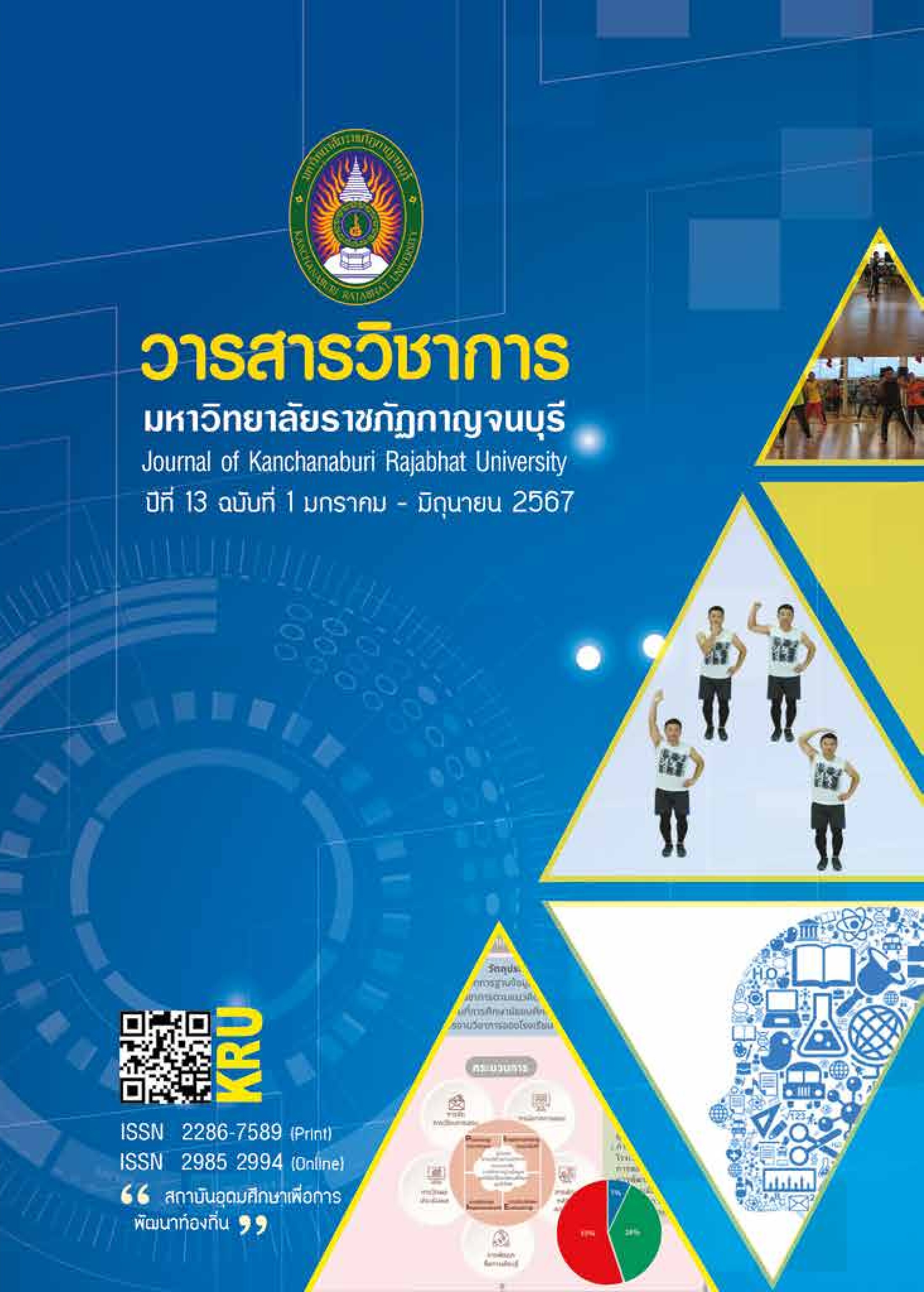ปัจจัยที่มีอิทธิพลต่อการยอมรับเทคโนโลยีของผู้สูงอายุในยุคดิจิทัล: กรณีศึกษา องค์การบริหารส่วนตำบลเกาะยอ อำเภอเมือง จังหวัดสงขลา
Main Article Content
บทคัดย่อ
การวิจัยในครั้งนี้มีวัตถุประสงค์เพื่อ 1) ศึกษาระดับการรับรู้ถึงประโยชน์ที่มีอิทธิพลต่อการยอมรับเทคโนโลยีของผู้สูงอายุในยุคดิจิทัลในเขตองค์การบริหารส่วนตำบลเกาะยอ อำเภอเมือง จังหวัดสงขลา 2) ศึกษาระดับการรับรู้ความง่ายในการใช้งานที่มีอิทธิพลต่อการยอมรับเทคโนโลยีของผู้สูงอายุในยุคดิจิทัลในเขตองค์การบริหารส่วนตำบลเกาะยอ อำเภอเมือง จังหวัดสงขลา 3) ศึกษาระดับทัศนคติที่มีต่อการใช้งานที่มีอิทธิพลต่อการยอมรับเทคโนโลยีของผู้สูงอายุของผู้สูงอายุในยุคดิจิทัลในเขตองค์การบริหารส่วนตำบลเกาะยอ อำเภอเมือง จังหวัดสงขลา 4) ศึกษาการยอมรับเทคโนโลยีของผู้สูงอายุในเขตองค์การบริหารส่วน ตำบลเกาะยอ อำเภอเมือง จังหวัดสงขลา และ 5) พยากรณ์ปัจจัยที่มีอิทธิพลต่อการยอมรับเทคโนโลยีของผู้สูงอายุในยุคดิจิทัลในเขตองค์การบริหารส่วนตำบลเกาะยอ อำเภอเมือง จังหวัดสงขลา สำหรับกลุ่มตัวอย่างที่ใช้ในการวิจัยครั้งนี้ ได้แก่ ผู้สูงอายุในองค์การบริหารส่วนตำบลเกาะยอ จำนวน 307 คน โดยใช้แบบสอบถามเก็บรวบรวมข้อมูล เพื่อหาค่าความถี่ ร้อยละ ค่าเฉลี่ย ส่วนเบี่ยงเบนมาตรฐาน และการวิเคราะห์การถดถอยพหุคูณ
ผลการวิจัย พบว่า 1) ระดับการรับรู้ถึงประโยชน์ อยู่ในระดับมาก 2) ระดับการรับรู้ความง่ายในการใช้งาน อยู่ในระดับปานกลาง 3) ระดับทัศนคติที่มีต่อการใช้งาน อยู่ในระดับมาก 4) ระดับการยอมรับเทคโนโลยี อยู่ในระดับมาก และ 5) การพยากรณ์การยอมรับเทคโนโลยีของผู้สูงอายุในเขตองค์การบริหารส่วนตำบลเกาะยอ สามารถพยากรณ์ ได้ร้อยละ 90
Article Details

อนุญาตภายใต้เงื่อนไข Creative Commons Attribution-NonCommercial-NoDerivatives 4.0 International License.
เอกสารอ้างอิง
เฉลิมศักดิ์ บุญประเสริฐ และกัลยา ใจรักษ์. (2560). ปัจจัยที่มีอิทธิพลต่อการยอมรับการใช้แอพพลิเคชั่นไลน์ของผู้สูงอายุ. รายงานสืบเนื่องการประชุมสัมมนา
วิชาการ (Proceedings) การนำเสนอผลงานวิจัยระดับชาติ เครือข่ายบัณฑิตศึกษา มหาวิทยาลัยราชภัฏภาคเหนือ ครั้งที่ 17. หน้า 1968-1977.
(21 กรกฎาคม 2560).
ทิพยา กิจวิจารณ์. (2549). วิธีการวิจัยทางการศึกษา. ขอนแก่น: มหาวิทยาลัยภาคตะวันออกเฉียงเหนือ. มูลนิธิสถาบันการวิจัยและพัฒนาผู้สูงอายุไทย. (2565).
รายงานสถานการณ์ผู้สูงอายุไทย. ค้นเมื่อ กรกฎาคม 13, 2565, จาก https://thaitgri.org/.
วสุธิดา นุริตมนต์ และทรงวิทย์ เจริญกิจธนลาภ. (2561). ปัจจัยที่มีอิทธิพลต่อการยอมรับเทคโนโลยี และความตั้งใจใช้บริการชำระเงินของผู้บริโภครุ่นใหม่ด้วย
โปรแกรมประยุกต์คิวอาร์โค้ดผ่านโทรศัพท์เคลื่อนที่สมาร์ทโฟน. วารสารวิชาการนวัตกรรมสื่อสารสังคม, 6 (2), 40-50.
วีระยุทธ พรพจน์ธนมาศ. (2565). ระเบียบวิธีวิจัยทางรัฐศาสตร์และรัฐประศาสนศาสตร์. กรุงเทพฯ: จุฬาลงกรณ์มหาวิทยาลัย.
ศิริชัย กาญจนวาสี. (2544). ทฤษฎีการทดสอบแบบดั้งเดิม. (พิมพ์ครั้งที่ 4). กรุงเทพฯ: จุฬาลงกรณ์มหาวิทยาลัย.
สิทธิชัย ภูษาแก้ว. (2560). ปัจจัยการยอมรับเทคโนโลยีที่มีผลต่อการตัดสินใจใช้บริการ Grab ของผู้บริโภคในกรุงเทพมหานคร. การค้นคว้าอิสระบริหารธุรกิจ
มหาบัณฑิต บัณฑิตวิทยาลัย มหาวิทยาลัยกรุงเทพ.
องค์การบริหารส่วนตำบลเกาะยอ. (2565). จำนวนประชากรในเขตองค์การบริหารส่วนตำบลเกาะยอ. สงขลา: เอกสารสำเนา.
อัจฉรา เด่นเจริญโสภณ. (2560). ปัจจัยที่มีอิทธิพลต่อการยอมรับเทคโนโลยีสารสนเทศเพื่อใช้ในการปฏิบัติงานของสำนักงานปลัดกระทรวงวิทยาศาสตร์และ
เทคโนโลยี. สารนิพนธ์รัฐประศาสนศาสตรมหาบัณฑิต. วิทยาลัยการบริหารรัฐกิจ มหาวิทยาลัยบูรพา.
Best, J. W. (1977). Research in Education. (3rd edition). New Jersey: Prentice Hall.
Fishbein, M., and Ajzen, I. (1975). Belief, Attitude, Intention, and Behavior: An Introduction to Theory and Research. Boston: Addison-
Wesley.
Rogers, E. M. (2003). Diffusion of Innovations. New York: Free Press.
United Nations. (n.d.). Ageing. Retrieved on July, 13, 2022, from https://www.un.org/en/global-issues/ageing.
Yamane, T. (1973). Statistics: an introductory analysis. New York: Harper & Row.


